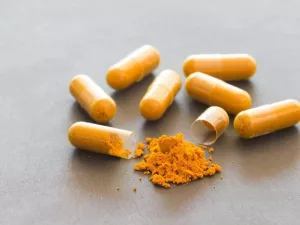Vitamin K2 occurs mainly in animal-derived foods such as beef liver and various cheeses. It plays a vital role in multiple aspects of health, including blood clotting, calcium handling, and cardiovascular function. Some researchers believe vitamin K2 could be the missing connection between diet and several long-term diseases.
Vitamin K was first identified in 1929 as a nutrient essential for blood coagulation — the medical term for blood clotting.
The discovery was published in a German journal where it was named “Koagulationsvitamin,” which is the origin of the K designation for this vitamin.
There are two principal forms of vitamin K:
- Vitamin K1 (phylloquinone): abundant in plant-based foods like leafy vegetables
- Vitamin K2 (menaquinone): present in animal products and fermented foods, and also synthesized by gut microbes
Vitamin K2 itself comprises several subtypes, with MK-4 and MK-7 being the most notable.

Vitamin K2 and reduced heart disease risk
Calcium accumulation in the coronary arteries is a major contributor to heart disease.
Anything that limits this calcium buildup could potentially lower heart disease risk. Vitamin K appears to prevent calcium from depositing in the arterial walls.
A pooled analysis of 21 studies involving 222,592 participants found that higher dietary intake of either vitamin K1 or K2 was associated with a modestly lower risk of coronary heart disease, though not with reduced mortality.
A 2020 review examining the link between dietary vitamin K and coronary heart disease in adults reported a decreased risk of coronary events with vitamin K intake.
The review highlighted that K2 seemed particularly promising and noted that much of dietary K1 is converted into K2 within the body.
Keep in mind these were observational studies, which cannot establish causation. Randomized, long-term trials focused on vitamin K2 and cardiovascular outcomes are still needed.
Nonetheless, there is a plausible biological rationale for K2’s effects and consistent positive associations with heart health in observational research.
Vitamin K2 for bone health and osteoporosis prevention
Osteoporosis — literally “porous bones” — is common, especially with advancing age, and greatly increases fracture risk.
As noted above, vitamin K2 is central to calcium metabolism, the key mineral in bones and teeth.
Vitamin K2 activates calcium-binding proteins — matrix GLA protein and osteocalcin — which are important for building and preserving bone.
There is substantial evidence from controlled trials suggesting K2 may benefit bone health.
A meta-analysis of 16 trials including 6,425 postmenopausal women found that vitamin K2 supplementation had favorable effects on bone mineralization and improved bone strength.
However, a 2023 review covering trials from the last decade reported mixed results.
Higher-quality, longer-duration studies are required to confirm benefits for preventing or treating osteoporosis, enhancing bone mineral density, and reducing fracture risk.
Vitamin K2 and oral health
A 2023 review of 4,965 older adults concluded that regular vitamin K supplementation combined with moderate fiber intake helped prevent tooth loss due to periodontal disease, particularly in men.
The benefit was less clear among Black participants, indicating a need for further research.
Given animal data and vitamin K2’s role in bone turnover, it’s reasonable to expect an impact on dental health as well.
One bone-regulating protein involved in dental health is osteocalcin — the same protein essential for bone metabolism and activated by vitamin K2.
Osteocalcin triggers mechanisms that promote formation of new bone and dentin, the calcified tissue beneath tooth enamel.
Vitamins A and D are also thought to contribute, acting in concert with vitamin K2.
Vitamin K2 and cancer risk
Several investigations have looked at vitamin K2 in relation to certain cancers.
Laboratory and animal studies indicate that K2 may inhibit liver cancer cell growth. Still, larger, rigorous, long-term human trials are necessary to demonstrate reduced liver cancer incidence and improved survival.
Some research has linked high intake of certain menaquinones with an elevated breast cancer risk, but more robust studies are required before drawing firm conclusions.
How to obtain enough vitamin K2
Many common foods provide vitamin K1, but K2 is less widespread in typical diets.
Your body can convert some K1 into K2, which matters because dietary K1 intake usually exceeds K2 intake.
Only about 10–15% of consumed vitamin K1 is absorbed in the gut, so absorbed K1 represents roughly half of dietary vitamin K.
Evidence suggests this conversion is inefficient, meaning you may gain more benefit from consuming vitamin K2 directly.
Gut bacteria in the large intestine also synthesize vitamin K2. Some evidence indicates that broad-spectrum antibiotics can contribute to K2 deficiency.
Overall, average intakes of this nutrient are very low in modern diets.
Vitamin K2 is primarily found in certain animal and fermented foods. Rich animal sources include full-fat dairy from cows, egg yolks, and liver and other organ meats.
Because vitamin K is fat-soluble, lean and low-fat animal products contain little of it.
Animal-based foods tend to provide the MK-4 form, while fermented foods such as sauerkraut, natto, and miso contain more of the longer-chain forms, MK-5 through MK-14.
Supplements are an alternative if these foods are not available. Consult a healthcare provider before starting vitamin K2 supplementation.
Supplement benefits may be enhanced when vitamin K2 is taken together with vitamin D, as the two nutrients can act synergistically. For more on combining these nutrients, see vitamin d and vitamin k.
Frequently asked questions
How do vitamins K1 and K2 function?
A key function of vitamin K is to manage calcium deposition — promoting mineralization of bones while preventing calcification in blood vessels and kidneys.
Some researchers argue that K1 and K2 have quite distinct roles and might be considered separate nutrients.
More human research is necessary to fully clarify functional differences between K1 and K2.
Is vitamin K safe?
Vitamin K has a very low toxicity risk. Consequently, no Tolerable Upper Intake Level (UL) has been established. There is no known toxicity from vitamin K1 or K2 from food or supplements.
Does vitamin K interact with medications?
People on anticoagulant drugs like warfarin are advised to keep their vitamin K intake stable and avoid large amounts of vitamin K-rich foods or abrupt changes in consumption.
Sudden shifts in vitamin K can interfere with the medication, altering clotting control.
The takeaway
Vitamin K refers to a group of nutrients, primarily vitamin K1 and vitamin K2.
Vitamin K1 is important for blood clotting, while vitamin K2 supports bone and cardiovascular health. Still, more research is needed to clarify the roles of different K subtypes.
Some experts recommend K2 supplementation for those at risk of heart disease, while others call for more evidence before making broad recommendations.
Regardless, vitamin K is essential for proper bodily function. Ensure you obtain adequate amounts of both K1 and K2 through a balanced diet to support overall health.

























Leave a Reply
You must be logged in to post a comment.